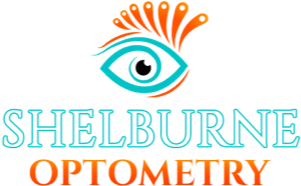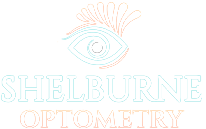If you’ve been a reader of ours for a bit (thank you!) you may remember our blog post Seeing Is Believing: Nutrition to Optimise Your Vision Health. In that post, we listed lots of unhealthy (albeit delicious) things to avoid for the sake of your health (particularly vision health), and we also listed the essential vitamins and nutrients needed to ensure optimal vision health. This blog post is going to dive deeper on the second part: shining a light on the vitamins (and supplements) that best support a healthy ocular care routine.
Important Note from your favourite Optometry Blogger: Before we dive in, please note that you should definitely always consult a medical professional before starting any new supplements, and to clarify the amounts your unique body and system need to maintain your overall health.
The Best Vitamins for Optimal Vision
We know our bodies need vitamins and minerals to function at their best. Many of them have amazing effects on multiple areas of our systems, but some directly affect our eyes more than others. And since we’re in the business of optimal vision, those are the ones we’re gonna focus on, and they’re easier to get into your system than you may think.
Vitamin A
Vitamin A is a little powerhouse of a nutrient. It offers support to our organs such as our heart and lungs (super important), and many other areas of our physical development, including cell division, reproduction, our immune system, and—you guessed it—our vision.
Vitamin A is a fat-soluble vitamin (meaning it enters our system along with healthy fats in our diet, and gets stored in our fatty tissues and liver) that, luckily for our eyes, is present in many common foods. The absolute best sources of Vitamin A include:
- Cantaloupes
- Carrots
- Leafy Greens
- Sweet Potatoes
- Tomatoes
While Vitamin A can be taken as a supplement, your body actually absorbs it best out of natural foods. As we head into summer, the five foods listed above are wonderfully refreshing on those hot days. If you do choose to go the supplement route, it’s best taken with food anyway due to it being absorbed through the body’s fat.

Vitamin C
Vitamin C is one of those vitamins that everyone knows they need. It’s a staple in a healthy diet, a widely-known natural key to health and immunity. It greatly supports and protects our cells, essential to proper healing and maintaining our skin, bones, blood vessels and more. And anything good for our cells and blood vessels is great for our eyes!
Unlike Vitamin A, Vitamin C is water-soluble (meaning it enters our system through our body’s water, which also means it’s easily lost throughout the day and needs to be replenished more often). Our bodies don’t hold onto this essential nutrient so we need to keep snackin’ it into our systems. Some of the best snacks to get that Vitamin C into you include:
- Bell Peppers
- Broccoli, Brussels Sprouts & Cauliflower
- Citrus Fruits (especially oranges, but also grapefruits, kiwis, lemons and pineapples)
- Other Fruits like Blueberries, Cantaloupe and Strawberries
- Potatoes
- Tomatoes
A lot of these can be ingested as fresh juice, and similarly to Vitamin A, Vitamin C is best consumed in its fresh, raw state. Vitamin C supplements abound, but it’s quite easy to include it in your diet.

Vitamin E
Vitamin E is a fat-soluble antioxidant that fights free radicals—loosey goosey electrons in our system—and promotes strong health in our vision (especially our retinas, the part of the eye responsible for us seeing anything at all), blood, brain, skin, reproduction and immunity. All fantastic things.
Before you consider eating your anti-aging cream, Vitamin E is present in a lot of easy places, too, just like its friends A and C:
- Almonds
- Avocado
- Bell Peppers (particularly Red Bell Peppers)
- Eggs
- Fish such as Atlantic Salmon and Rainbow Trout (Fish are also high in Omega-3s, which we’ll chat about later, but did you know getting enough Vitamin E will protect and promote the benefits of Omega-3s? It’s a win-win.)
- Peanut Butter
- Pine Nuts
- Sunflower Seeds
Like Vitamin A, Vitamin E is best taken with food if you decide to use supplements, as it’s best absorbed into your body’s fat that way.

Lutein & Zeaxanthin
These two friends are carotenoids, naturally occurring pigments produced by plants. They are most often (if not always) prescribed as an eye-health supplement. Having more Lutein and Zeaxanthin in your eye tissue is directly linked to better vision and overall eye health. They’re particularly handy for protecting your eyes from high-energy light sources (such as UV light) and allowing better vision in low-light settings. Studies have also shown these little dudes can help slow the progression of Age-Related Macular Degeneration (AMD), and may prevent it altogether.
While you can take a supplement to get these little heroes into your eyes, they’re also found in a lot of natural food sources (because, ya know, they come from plants). Some of the best sources of Lutein and Zeaxanthin include:
- Broccoli
- Corn
- Egg Yolks
- Kale
- Parsley
- Peas
- Savoy Cabbage
- Spinach
Honestly, one good salad and your eyes will be in heaven.

Zinc
Zinc does all kinds of fun things for the human body: it helps our metabolism, immunity, cell division and growth, wound healing, absorbing protein, and even our sense of taste and smell. It also helps with blood sugar levels, and as we know, anything good for our hearts is definitely good for our eyes.
Zinc is one of those vitamins that you can take too much of, so definitely always consult a doctor before starting a supplement. We only need Zinc in small doses, and we can get it—like all the other vitamins on this list—pretty easily through our diet. Zinc can be found in places such as:
- Eggs
- Fish such as Flounder, Salmon, Sardines and Sole
- Legumes such as Black Beans, Chickpeas, Kidney Beans, Lentils, etc.
- Nuts and Seeds such as Cashews, Hemp Seeds, Pumpkin Seeds, etc.
- Poultry such as Chicken and Turkey
- Shellfish such as Clams, Crab, Lobster, Mussels and especially Oysters
- Some meats such as Beef and Pork
- Some vegetables such as Asparagus, Beet Greens, Kale, Mushrooms and Peas
- Whole Grains such as Brown Rice, Oats, Quinoa, etc.
The immunity and healing benefits of Zinc alone make it a great vitamin to pay attention to, but those benefits of cell division and growth are especially helpful for our eyes, where lots of little things do lots of big things.
Fun Fact: most of the foods on these lists appear more than once, so you can combine your benefits just by including a few!

Omega-3
Omega-3 is so beneficial to optimal vision, it deserves its own section.
These healthy fats work all sorts of magic on our systems. They reduce inflammation (particularly in our blood vessels), lower blood pressure and blood fat levels, and can also slow the buildup of plaque in our blood vessels, all of which is great news for our eyes. As an added bonus, these fatty acids also contribute to healthy joints, bones and skin, and support healthy brain function. They’ve even been linked to helping treat and prevent several autoimmune diseases. All good things!
Many people use the term Fish Oil interchangeably with Omega-3. The key difference is that Omega-3 is a nutrient, and Fish Oil is one source of that nutrient.
The most common source of Omega-3 is fish, such as:
- Anchovies
- Caviar
- Cod Liver Oil
- Herring
- Mackerel
- Oysters
- Salmon
- Sardines
Other great sources of Omega-3 (if seafood isn’t your jam) include:
- Algae
- Chia Seeds
- Eggs (Omega-3 enriched or Pasture-Raised)
- Flaxseed
- Hemp Seeds
- Soybeans
- Spinach
- Walnuts

Omega-3 and Your Eyes
Several studies have linked Omega-3 with reducing symptoms of dry eye, improving tear quality, and even preventing Age-Related Macular Degeneration (AMD). Its aid in treating autoimmune diseases that we mentioned above is also good for our eyes, as dry eye (and other vision concerns) can often be a side effect of certain autoimmune diseases.
There are a plethora of Omega-3 supplements on the market, but not all are created equal. In fact, there are some that are specifically designed to help treat symptoms of dry eye disease. We’ve conveniently collected our favourites into our online shop to make it easier for you to know you’re getting the best quality supplements to support your eye health.
Our favourites include:
- NutraSea Kids Liquid Omega-3
- NutraVege Plant-Based Omega-3 (Extra Strength)
- Omega Essentials High Potency Liquid
- PRN De3 Dry Eye Omega Benefits
We also have other options in our clinic that haven’t made it online yet, including NutraSea Kids Gummy Chews and NutraVege Plant-Based Kids Liquid Omega-3. Feel free to contact us if you have any questions about the products we offer, or are interested in those not yet listed online. We can be reached at 519-925-3882 or [email protected].
Final Thoughts
It’s comforting to know that all the vitamins we explored in this post are readily available to us in the foods we eat.
I know, I know: eating healthy is so cringe. But let’s be real: wouldn’t you rather be healthy…? Like in the grand scheme of living to your fullest, seeing your clearest, and spending as much time as you can with your loved ones, doesn’t adding just a few of these into your regular diet seem pretty worth it? Remember, some of them appeared on more than one list, so that makes things even easier.
We understand the important role that the overall health of our body and its systems has on our sensitive and complex eyeballs. The easiest way to promote good eye health for yourself, is to promote good health for your entire body. And for us, you’re an entire person, not just your eyes, and that matters.
Wishing you all the best in wherever your path takes you today,
Sydney Gallant, CCOA









